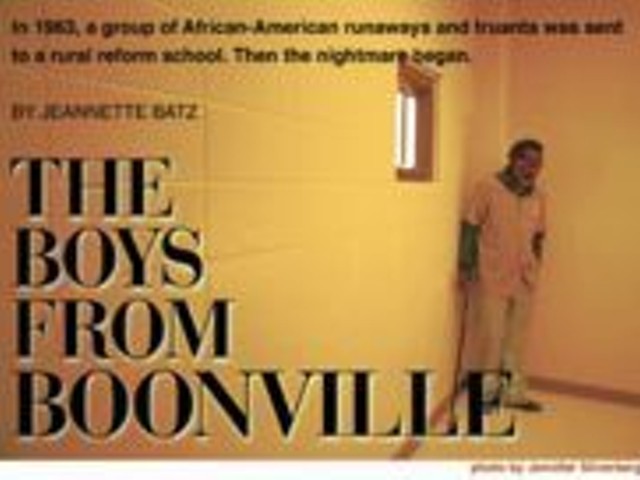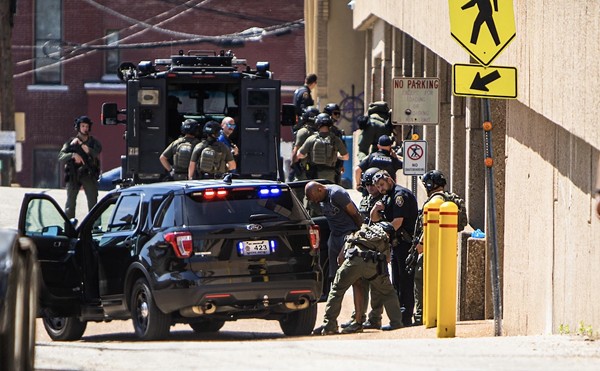Both Nick Allen and James Baker are rumored to be dead.
Nobody knows what happened to Neugene Blue, who was 14 when he was sent to the penitentiary, or Tommy Berry, who was 15. There is no further record of their incarceration in Missouri or in any federal penitentiary.
Wilson Jones is in the Eastern Correctional Center in Pacific, Mo., serving a life sentence for second-degree murder.
Joseph has kept track of boys transferred from Boonville in other groups, too. He heard that Wes May, who they called Junior Man, was beaten to death by guards in the Kansas State Penitentiary in Lansing. (Prison officials in Lansing say an African-American man named West May Jr., sent to Kansas from another state, committed suicide there in 1987.) Joseph heard that Charles Franklin was murdered by Aryan Brotherhood members in the Nevada State Penitentiary. (According to the Nevada Department of Corrections, an African-American inmate, Charles Edward Franklin of St. Louis, Mo., was transferred to an out-of-state prison, where he was beaten to death by another inmate in 1985.) Earl Butler was allegedly murdered in a dispute over a TV program in the St. Louis City Workhouse in 1970. (A spokesman for the workhouse says any records that could confirm this are long gone.)
Glenn Michael Watson, transferred from Boonville in 1965, is now in the Moberly correctional facility. He and Joseph made a list of every other transferred boy whose name they could remember -- James Johnson, Earl Butler, Curtis Williams, Robert Franklin, Leroy Harvey, Earl Williams, Theodore Carter, Bennie Stokes, Earl Reese, Willie Pryor, Terry Brodie, Eddie Marshall, Gary Brauch, Russell Bailey, George McGill and Charles Williams.
The Department of Corrections would neither confirm nor deny that any of these boys had been transferred. But when Wainwright listens to the list, he gives a deep "mmm-hmmm" of recognition after each name, his remembering almost a litany, the grieving mainly private.





